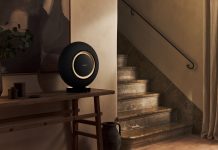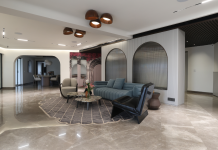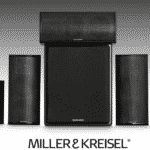
Angad Singh Bedi, Managing Director, BCD Group, combines his deep expertise in the global real estate sector with a rich background in finance. Angad honed his skills at prestigious consulting firms such as KPMG and PricewaterhouseCoopers, excelling in cross-border mergers and acquisitions, taxation, and restructuring. Driven by a lifelong passion for real estate and a commitment to achieving groundbreaking milestones, Angad transitioned into the family business early in his career, bringing a visionary approach to the industry. He shares his insights on Building Automation Systems, which are set to become a vital component of modern building design and management nationwide.
What is your experience with incorporating Building Automation Systems (BAS) and Home Automation into your development projects?
In today’s day and age sustainability has become the key theme for any quality project and BAS ensures that the project is not just compliant, but also highly relevant. This ensures the long-term appreciation potential of the project while enhancing the overall experience of the occupants. Our experience with both Building Automation Systems and Home Automation has been extremely positive. Through BAS we have been able to integrate heating, HVAC, lighting, security etc on a common platform, thus increasing the operational efficiency. Our projects with BAS has thus contributed immensely towards achieving carbon neutrality and making the projects 100% sustainable. Similarly, Home Automation has not only enhanced the living experience but also enabled the residents to save a lot of costs.

How do you perceive the role of Building Automation and Home Automation in enhancing the overall functionality and efficiency of buildings and residential spaces?
In the residential spaces, Building Automation and Home Automation are revolutionizing the entire game. As far as overall functionality and efficiency are concerned, these systems are making the assets more environment friendly by tackling issues like climate change and helping in optimal utilization of resources. A residential property or society equipped with such systems is more desirable not just from a buyer’s perspective but are also more lucrative from an investment point of view due to high appreciation potential.
What specific features or functionalities of building automation systems do you find most valuable in your projects (e.g., HVAC control, lighting automation, access control, energy management)?
I think all the functionalities have their own importance. The best part is, BAS integrates all these functionalities and helps in reducing energy consumption, reducing maintenance costs, improving occupants’ comfort and productivity, and extending the life cycle of the utilities.

In what ways do building automation systems contribute to sustainability and energy efficiency goals in your projects?
According to a report published in Proceedings of the National Academy of Sciences, in the next 50 years, 30% of the world’s estimated population is expected to reside in regions where the average temperature is above 29°C due to climate change-related rapid temperature rise and population expansion. Currently, this climate only exists on less than 1% of the Earth’s land surface, mainly in the hottest regions of the Sahara Desert. But by 2070, these temperatures are expected to be present across about a fifth of the planet’s terrestrial surface. Having said that, building systems have a special role to play and they are contributing immensely to sustainability and energy efficiency goals in our projects.
What are the main challenges or barriers you encounter when implementing building automation systems in your projects, and how do you address them?
With the growth of technology, smart buildings are growing more and more complex, requiring quicker follow-up looks via retro-commissioning. Adding to that, the risks associated with sustained operational integrity are also mounting. Hence, the demand for comprehensive building automation systems is expected to spike. It is very important to establish the necessary communication between the system providers/designers and owners of the buildings to understand the functioning of the building.

How do you ensure that building automation systems are user-friendly and intuitive for occupants and end-users?
While planning the integration of automation system we ensure that it is meticulously designed, keeping in mind the end user psychology. We consider every minute aspects ranging from automated curtain sliding, lighting and appliance control to security and access control, keeping consumer practicality in mind. We do extensive research on how operation efficiency can be achieved and how automation is compatible on any device.
What considerations do you take into account when selecting building automation technologies and solutions for your projects (e.g., scalability, compatibility, cost-effectiveness)?
Well, building automation system can be divided into two categories, one is for home usage and the other is for exteriors. For the exterior we consider only the best security and access control solutions so that the consumers are in total control. We also consider systems that allow consumers to track the consumption of water, electricity and maintenance. Though the deployment cost seems on the higher side, over the period of time it helps in saving a lot of cost and helps in utilizing resources to the optimum.

Can you provide examples of successful projects where the implementation of building automation systems has had a significant impact on building performance, occupant comfort, or operational efficiency?
We have completed a 1000-unit project called BCD Emprasa. We also brought in a new entity which is a facility management and operation control company. This project has one of the highest occupants in India with about 10,000 girls who will be working in Fortune 500 factories for production. That is a very heavy number of people in a particular project. For this we have implemented fire safety, STP, usage, CCTV cameras, power monitors, and fire safety along with a robust automated security system.
How do you see the future of building automation and home automation evolving in the real estate development industry, and what opportunities do you foresee for further innovation and adoption?
According to a published study, The India Building Automation & Control Systems market was valued at USD 10.28 Billion in 2023 and is anticipated to project robust growth in the forecast period with a CAGR of 8.64% during the forecast period, i.e. 2029. The Building Automation and Control Systems (BACS) market in India has witnessed remarkable growth in recent years, fuelled by a surge in infrastructure development, urbanization, and a growing emphasis on energy efficiency and sustainability. With a rapidly expanding real estate sector and a push for smart cities, BACS has become an integral component in modern building design and management across the country.















